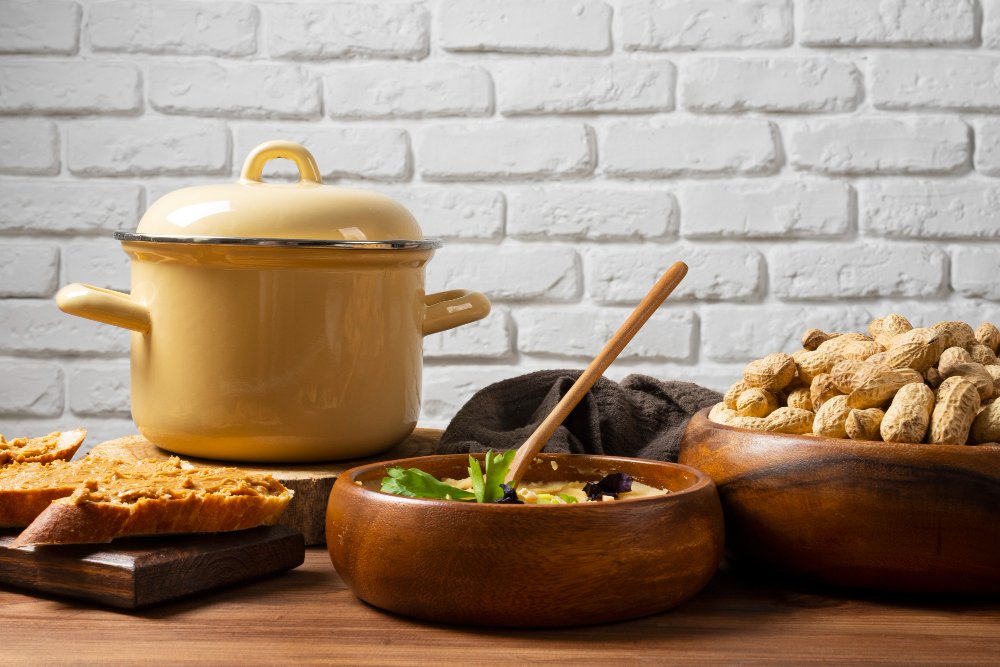
When it comes to cooking, flavor is everything. The secret to delicious food is not only in the ingredients and spices but also in the tools you use. While stainless steel, non-stick, or plastic utensils dominate many kitchens today, an age-old truth remains: wooden utensils hold a special place in preserving the natural flavors of your food.
At WoodenGems, where we celebrate the art of handcrafted wooden kitchenware, we believe that every meal should not only sustain but also delight the senses. And that’s why understanding how wooden utensils impact your cooking is essential for every home chef seeking authenticity in taste.
Wood has been humanity’s kitchen companion for centuries. From ancient cooking fires to today’s modern kitchens, wooden spoons, ladles, and spatulas have been cherished not only for their durability but also for their ability to treat food with care. Unlike synthetic alternatives, wood is natural, non-reactive, and gentle, ensuring that the integrity of your dish remains intact.
But how exactly do wooden utensils help preserve natural flavors? Let’s explore.
Have you ever noticed how a metal spoon changes the flavor of tangy sauces, chutneys, or tomato-based curries? Metal utensils, especially if lower in quality, can react with acidic ingredients—altering the taste ever so slightly.
Wooden utensils, however, are completely non-reactive. Whether you’re stirring lemony dal, simmering tamarind curry, or making pickles, wood ensures that the natural tang, richness, and zest remain exactly as they should. The result? Pure, unaltered flavor.
Spices are the heart of Indian and global cooking—each carrying unique oils and aromas that make food memorable. Hard metal utensils often bruise or crush delicate spices and herbs when stirred vigorously.
Wooden spoons, by contrast, are gentle and smooth. They don’t break apart spice leaves prematurely or scrape against cookware in a way that alters texture, ensuring your masalas release flavor gradually, the way they are meant to.
Aroma and flavor go hand in hand. Wooden utensils don’t conduct heat like metal, which means they don’t overheat or burn food molecules accidentally. This prevents subtle aromas—like the smokiness of roasted cumin or the sweetness of sautéed onions—from being lost. By keeping cooking even and controlled, wood lets these natural scents infuse into your dishes.
One of the biggest complaints of using stainless steel or aluminum utensils is the faint metallic aftertaste they sometimes leave behind. While this may go unnoticed in strong curries, it becomes prominent in soups, sauces, or delicate desserts.
Wooden kitchenware adds no unwanted flavor—instead, it allows the natural taste of ingredients to shine, offering a cleaner and more authentic eating experience.
Indian cooking relies heavily on oils and ghee, which carry both nutrients and flavor. Metal spoons can sometimes cool these oils too quickly or even leach unwanted elements at high heat. Wooden utensils, being poor conductors of heat, help oils and ghee retain their natural richness and aroma during cooking. This ensures your dish gets the full benefit of healthy fats and their distinct flavor profiles.
Wood has natural antimicrobial properties. Unlike plastic, which can trap odors and bacteria, or metal, which requires thorough scrubbing, wood maintains hygiene while also being kind on your cookware. A clean, well-oiled wooden spoon won’t harbor smells or compromise taste, giving your meals consistency across every use.
Uneven stirring can sometimes burn spices or leave food undercooked, which distorts flavor. Wooden utensils make stirring easier and smoother, especially in deep pots or kadais. Their curved, ergonomic designs ensure that food is mixed evenly, promoting full-bodied and uniform flavor release in every dish.
Beyond its practical benefits, there’s something emotionally comforting about cooking with wooden utensils. They connect us with generations of tradition, where food was slow-cooked with love and care. This cultural continuity itself influences flavor—because taste is often a blend of both palate and memory. Wooden cooking tools remind us that food prepared naturally always carries a richer, homelier flavor.
Although wooden utensils are naturally flavor-friendly, how you maintain them matters. To ensure they serve you for years while preserving taste:
A little care goes a long way in keeping your wooden tools hygienic, durable, and flavor neutral.
In today’s fast-paced world, where convenience often comes before quality, taking small steps toward mindful cooking can make a big difference. Wooden utensils are a simple way to ensure that your food tastes as nature intended—untainted and wholesome.
At WoodenGems, we craft every spoon, ladle, spatula, and bowl with attention to detail, using high-quality natural wood that upholds flavor, safety, and sustainability. With the right tools in hand, cooking becomes more than just preparing a meal—it becomes an experience of preserving authenticity, health, and tradition.
Cooking is an art, and flavors are its soul. Wooden utensils help you preserve the natural essence of food by being non-reactive, gentle, and traditional. Whether it’s enhancing spices, retaining natural oils, or avoiding metallic aftertastes, wood ensures that every dish remains true to its origins.
So, if you want your cooking to taste more natural, authentic, and delicious, bring wooden utensils into your kitchen. They don’t just stir food—they stir memories, health, and timeless flavors.
At the end of the day, food should taste like food—and wood makes sure of that.
WoodenGems is an artisanal Brand passionately dedicated to crafting premium kitchen wooden utensils, tableware, and serving wares under our trusted parent company NatureKraft.
NatureKraft – GST 07APKPK2731F1Z2.
Copyright © 2025 WoodenGems. All rights reserved.